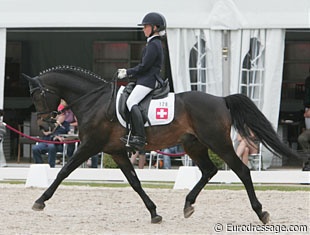
Question: My ten year old daughter pulls on the reins too much, causing her pony to get tense and cross. This is a really bad habit. How do I get her to let go?
Answer: The first thing I would try to do is engage your daughter in an exercise in problem solving. Studies have shown that children who are given primarily direct orders have less brain development than children who are asked to help solve their problems with creativity.
Here are some ideas about how I would approach the typical ten year old:
- First I would ask her why she is pulling. If she says “I don’t know….” Then ask her “What are you afraid will happen if you let go?” Let her describe her experience to you.
- Most likely she is pulling because she feels like the pony is getting a little fast and strong. Often pulling just makes things worse, but she may be getting scared, and doesn’t have any other tools to use. She may even tell you that the pony is pulling against her, rather than her pulling against the pony.
- Explain to her that as riders we must always take responsibility for our training issues, but don’t discredit her experience. If she says it is the pony’s fault, then teach her that it even if the pony “starts it”, as intelligent riders we have to come up with effective ways to ride and train. No horse is perfect.
- If you take away some of her rein aids, be prepared to teach her how to use some of her other body parts to fill in for what the reins were doing. She will be much more likely to let go of the reins if she understands how to use her seat, back stomach and weight to control her pony.
- Play tug of war with your daughter using an old pair of reins. Demonstrate how the pony can only pull on her if she is pulling also. Likewise, use this to show her how to tug and let go repeatedly as you would in a series of half halts.
- Find a safe, quiet and sensitive horse that your daughter can get a different feeling from. You may only have her walk on a lunge line, but if she feels a different response from a more sensitive horse she may be able to transfer this feeling to her pony.
- Use images to teach her, rather than direct orders. You might say, ”Pretend the reins are like bungee cords” or, “Imagine closing your hand like you are squeezing water out of a sponge”. This will give her more information than just saying “don’t pull”.
- Take a plastic model horse, and tip it forward as if it were pulling on the reins. Show your daughter how the horse’s weight tips onto the front legs. Now apply some “half halts”, and show her how to rock the horse towards the hind legs. Lift the front of the horse and tip the weight onto the hind legs.
- Use positive language. Say “soften your hand forward” rather than “don’t pull”.
- Find a good instructor to teach her, even occasionally. Sometimes “Mom” is much harder to hear than a complete stranger- even if you are both saying exactly the same thing.
I would carefully evaluate your pony to make sure that there is not a physical reason for her tendency to get tense as she works. Sometimes chronic, low grade pain, such as seen in arthritis or gastrointestinal upset, can contribute to tension. Of course it could also just be the pony’s personality. Make sure a competent adult is schooling your pony regularly.
The most important goal is simply for your daughter to have fun. If this issue begins to interfere too much with her enjoyment, then you might consider finding her a new horse. The relationship between horse and rider is powerful. It can be very wonderful and inspiring, or frustrating and even scary. Try to help her resolve this issue and learn from it, but make sure the experience stays upbeat and positive. She is much more likely to make riding a lifelong love if she enjoys her young years of riding.
If you have Sport Psychology questions you can email me directly at seanaadams@aol.com. I enjoy hearing from you!